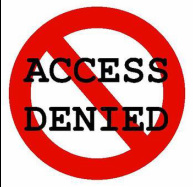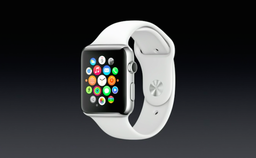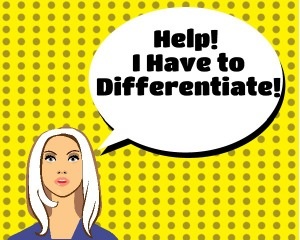|
It's become apparent that the Women of Ed Tech are organizing through their Ed Tech Women Groups and events, and I think it's finally time for the guys to do it. I have gotten together with a couple of guys over Twitter, and we have been passing around ideas. I have come up with one that I want to share in this blog entry in an effort to right it out in long form. To me, we need something that is easy to do on the side. Eventually, we might be able to break out into full on consulting, and I think that could be added in easily.
My idea centers around a website that brings all of the great ed tech dudes together. My thought is that we could build a site that makes it easy to find the ed tech dudes, and then adds features gradually. Initially, each ed tech dude would have basically a profile page on the Ed Tech Dudes Site. The page could include a biography, special certifications (such as Edmodo Certified Trained, Google Certified Teacher, etc), links to all social media, Expertise, and links to the ed tech dudes personal ed tech site or blog. If an ed tech dude does not have a blog, they could use their profile page as a place for their blog. Basically, this could brand us together, and add an extra accolade to our profiles. We could then expand the site into community events. It would be awesome to have a way and a list of people to come together with to do panel style presentations such as SSXSW and ISTE. Ed Tech Dudes would provide all its participants a place to find like minded people for those proposals. We could then expand it into events centered around major conferences and metro areas. My initial idea, is what better way to bring guys together then something like a beer bash. The ladies have these nice receptions at restaurants, but what do guys really want? We want to hang out have a few beers and eat food like chicken wings that are bad for us. We could do that while nerding out over ed tech. It would also bring like minded people together as friends. Eventually, this could spawn into a consulting group. I think if this becomes a thing in ed tech, people will begin to ask, "How can I be part?" and "How can I get these guys?" That's when you branch out into a consulting group. You could start by using the ed tech dudes site as a place to come get presenters, and then maybe you go full on consulting. Ed Tech Dudes, tell me what you think. If I have a couple of guys interested, I will start the site and share it with you. I think we have to have some standards of guys we include, but I think this is a starting place. Let me know if you like it
3 Comments
Don't you just hate when you have that awesome lesson planned using great digital tools, and then you get to school and that tool is blocked? Don't you hate how something is open one day, and then it is blocked the next? Why are we blocking so much in schools while these things are not blocked at home nor on their cell phone? Why can't schools teach kids to use digital tools the right way(especially Social Media) instead of just saying no you can't? Internet blocks at school can be a huge problem for the Digital Teacher, but you still have to have some. It is all about finding the Happy Medium.
First, let me tell you about the extreme. My current district (for the next two weeks anyway) just took internet blocks to the extreme. No You Tube. No Social Media. Heck you can't even Google search effectively because of changes in their security settings not matching up with Google safe search. The biggest problem with this is they did it one day in the middle of the week. They did not tell us their would be a crackdown. Their was no warning. This was not done in the summer so people can plan around it. How is that enlightening digital creativity? There are tools out there (like Twitter) that you can harness for education while teaching kids how to use a tool they might use in the workforce the right way. That is gone with these blocks. This also shows a massive mistrust of the instructional staff. In my district, that may be warranted, but its not a good signal to send. Now am I advocating a system with no internet blocks? The answer to that is a resounding no. Schools have to have some blocks. It's a federal law that you have to block things like porn, and I of course think those things should continue, We have seen many stories of people who have access to things like bomb making instructions. Kids can't have access to that. You have to find the happy medium between internet blocks and teaching digital citizenship. If we are truly preparing kids for the future, we have to prepare them to use the digital tools and the internet effectively. We can't just say no. Social Media should be open access in schools. There is lots of things you can do with it in the classroom. In my own class, we have projects like live tweeting a historical event or tweeting as a historical figure. Youtube has tons of educational videos, how to's, and just over benefit. The thing that pisses me off more than anything about the blocks is they are not consistent. Schools and Districts, IF YOU ARE GOING TO BLOCK SOMETHING, MAKE IT CONSISTENT!!! You never know what a teacher is using effectively. In my own district, our school system has blocked and unblocked Twitter multiple times. Google +has great educational uses and I have seen the blocks on it literally change in the same day! Those are not effective ways to manage the technology in your district. Really this issue comes down to what every issue related to technology in schools comes down to: the process. Teachers have to have creative ways to use these tools. They have to be mobile in the classroom to make sure these tools are being used effectively. They have to be able to recognize these tools. This makes technology coaches so important. Maybe if districts put the focus on teaching teachers instead of saying no, education would improve. You could actually hire tech coaches instead of folks who manage network blocks. I just watched the Apple god Jony Ive's explanation of the Apple watch, and all I have to say is WOW! I should expect Apple at this point to think of almost everything when they introduce a new product category, but I was truly blown away by what is really in the Apple Watch. The interaction you can have with it is just amazing. I am not going to go into the specifics of the watch here though because frankly my head is spinning by all the stuff that is included. My thoughts trend towards what I do know, and that is that this is coming to schools soon and we better get ready.
You don't think this will be in schools? It's right in line with the release of the Iphone and the Ipad, and guess what they are present with our students. The Iphone was released in 2007, and many schools are still fighting battles they cant win with the use of device in schools. The Ipad was released in 2010, and you have many schools that have adopted them 1 to 1. This watch is going to change things. This is the product that opens up the wearable category to our kids. It's better to start talking about it now. If you are a school or district that still has a no device policy, this product just killed your policy. Have your funeral for your outdated policy, and focus on what is most important......the process. You are not going to be able to tell students they can't wear a watch or they can't wear glasses (like Google Glass). The wearable product category is just going to get bigger and the price will come down. The Apple Watch does not have a prohibitive price like Google Glass, and many products will soon follow suite. Google Class actually cost less than $200 to make so you could even see makes it way to a price point that makes its available to kids, and guess what......If the Apple Watch is a hit, there will be tons of new competitors in the category. Is this something that will be really prevalent in schools within the next year? No, but waiting on a plan is what has killed schools in the past. When schools are slow to train and slow to adopt that's where they miss the boat. I really think districts should be forward thinking. Maybe even buy 2 to 3 of them when they are released, and then put them on your best of the best techie teachers. They could then come up with classroom uses, and have something for you when your staff is going ummmmm....... what do I do about this? Smart watches can be powerful classroom tools, and if they are using them in the process of learning it means they are not doing other stuff with them. These also mean that a teachers mobility in your classroom is more important than ever. Students are going to have a powerful tool on their wrist, and not in their pocket. In order to cut down the distractions and make sure that students are using it the right way, a teacher has to be a able to get right next to the student and see what's going on. These also open a whole new can of worms for test honesty. Can you see us trying to give state mandated test, and telling students ummmmm.... you have to put your watch in the front of the room. Hopefully, this will help kill educations over testing,, because in the end it might become impossible to make sure they are secure. The whole thing with the Apple Watch is that the price point is going make it available to out kids. We have to be prepared for that, but preparation is like what it should be with all technologies. It's all about the process. We should all be asking our self's right now......How can I use this to make learning come alive. I have a colleague who has told me on multiple occasions that differentiation is almost impossible. He thinks it's almost impossible to serve the vastly different learning levels in high school with different assignments and tasks that fit their needs. I understand where he is coming from, but he is really missing the boat. Technology makes differentiation EASY. To me, its one of the MAIN reasons to have technology truly integrated. You can have students go in vastly different directions with vastly different projects. You can give students choice. To me if you ever have anybody question the need for tech in schools, the key to the argument is differentiation.
The first thing you have to do in order to differentiate is go full on into a digital project based and paperless environment. You have to come up with assignments that can be done completely without paper, but you can still give students the option of turning somethings in on paper. Also, this does not mean things like essays are gone, and while I am not a worksheet person, you could even still keep them with a quick transfer into Google Drive. In my classroom, we have started a Historical Newsroom theme to our class. Students have some projects that everyone has to do, but they also have projects that are differentiated. Some of the projects everyone has to do include discussion questions on Edmodo, Analysis of Youtube Videos as Sources on Google Docs, and Quizzes on Edmodo. Where the differentiation really comes in is what project categories they are assigned to do in a unit. We have five Notebook, Parody Projects, Social Media Projects, Writing, and News Broadcast. They are also in order from what I think are the easiest to the hardest. I differentiate for students by what project category I assign them to do, and I usually assign 2-3 of these type of assignments per unit. For instance the lowest performing students might get the Notebook and Parody project as Assignments while the highest may get the Writing and News Broadcast. These are also differentiated by giving students a choice between 4-5 different projects to do. In the Parody category for example, they can act out historical figures, do historical caricatures, do a fake interview of a historical figure, or do a fake radio broadcast. The thing about differentiation is you have to have a way to organize, and ed tech makes it super easy. It's very hard (especially in higher grades) to run off multiple activities and do center based instruction. Technology allows you to give students different checklist and workflows for a unit based on their ability. I have used two strategies effectively: Differentiated unit Checklist on Wikispaces and Unit Work Flows on Symbaloo To do the differentiated checklist you need a Wiki. I love using Wikispaces. You create a wiki for your class. Wikispaces will allow you to do multiple wikis. You create pages on the wiki for each student. On each page you put a checklist of their assignments that are differentiated by group. This sounds hard and to be a lot of work, but its not. All you have to do is create 4 or 5 different tables for the different levels in a word processor. You can then cut and paste based on the level you think each kid is on. You could even adjust the checklist in special cases for a kid who you are trying to reach with a special assignment. The other way (and my current way) I differentiate is by using Symbaloo. I first write up all my assignment directions in Google Drive. This allows it to embedded in Symbaloo. I then create four different level workflows. Basically, it is just tiles of the Google directions in the order I want the student to complete them for the unit. Each of those workflows is differentiated based on the project categories I ask them to pick assignments from as explained above. When they are to pick from those categories, there is an icon that tells them to go to the Webmix with those categories. If you want to see an example of this, http://www.lockhartushistory.com/birth-of-a-nation1.html. While I have share with you my ways, there are SOOO Many other ways out there to differentiate. We can't really expect teachers to print off and go to each student and assign individualized work. Tech allows you to give them choices and assign categories for them to complete assignments out of based on their level. |
Archives
January 2023
Categories |




 RSS Feed
RSS Feed
